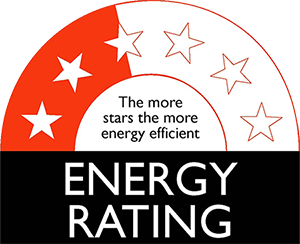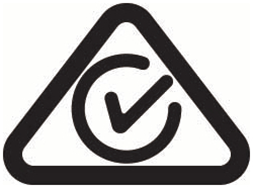Find the right electronic appliance or device: consider quality, features, budget, energy efficiency and safety.
Questions to ask yourself
Before you buy, be clear what the most important features are to you.
- What you want the device to do. For example, a phone that takes good pictures, or mainly send texts.
- How often you will use it. For example, every day, once a week, once in a while.
- How long you expect it to last. For example, a laptop may need to be replaced in three years, but a TV may last five years.
- What you can afford, or want, to pay.
- How it will fit where you live. For example, size and design.
- If it needs to work with other appliances. For example, is a Blue-ray player compatible with your TV.
Before shopping, reflect on your needs — and your budget.
Deciding what to spend
Think about what you may need to pay for the quality you want. Decide what features you really want and any you can do without, if it means paying less. Keep these in mind when shopping so you're less likely to spend more.
If you're on a budget, consider buying second-hand instead of new. Or if your current device or appliance is broken, check if it's repairable.
Product life, maintenance and care
Carefully read the full description of products sold online. Check that the size, materials and user guide is right for the purpose you are buying it for.
Example — Comparing washing machines
Builder Bryce has four young children. He does one or two loads of kids' clothes a day and five sets of filthy overalls each weekend. He wants his machine to last 10 years plus. Shopping around he decides he'll pay up to $1,500 for a model robust enough to cope with heavy use.
Suni works in an office, lives alone and dry cleans most her clothes. She does one small load of delicates a week. She sets herself a budget of no more than $800. She picks a less hard-wearing model, with a delicate spin cycle to fit her needs.
Buy Now Pay Later
If you plan to buy an appliance or device on hire purchase or interest-free credit, make sure you understand the total amount you'll pay before you agree to the contract.
Hire purchase usually has a set-up fee and interest charges, so you might end up paying more than if you pay the full cost upfront.
For interest-free deals, ask yourself if you can pay off the total cost within the interest-free period. When it ends, interest rates can be high.
Hire purchase and buying on credit
Debt calculator(external link) — Sorted
Price tag verses other costs
As well as purchase price, think about other potential costs.
- Cost to repair that make or model. Check if repairs can be done in New Zealand.
- How long the device might last. Comparing manufacturers' warranties can be a useful guide. These warranties are based on average use, and generally cover less time than consumer law says is reasonable.
- How much power it uses. Electricity use can vary widely, particularly for TVs and fridges depending on size and model.
Example — Long-term laptop
Elei needs a laptop for school. Her college suggests models with the features she'll use. They give different price options. After researching each, her parents choose one of the pricier models. With extra features, it should last Elei — who is keen on media and film — right through school. They're happy to pay more now to avoid upgrading in two or three years' time.
Energy star ratings
The more stars an appliance has, the cheaper it is to run.

Only compare stars for similar size products. For different-sized appliances, eg comparing a dishwasher to a dish drawer, look at each appliance's annual energy rating (kWh per year).
Energy efficient features, for example fast or cold wash cycles on washing machines, can also save money on your power bill.
Filter and compare products to find out how much different models cost to run:
Use efficient equipment(external link) — Gen Less
Money saving tips when using electronic appliances:
Example — Cheap heater, higher power bill
Frances chooses between two heaters. Reviews say they're both good models and brands. One costs $150, the other $225. The more expensive one has a better star rating. Frances uses EECA's Rightware tool to see how much each heater costs to run. The $150 heater would use $25 more electricity a month. Frances decides the $225 model is the best choice. She'll save more on power that winter than the extra she'll pay for the pricier heater.
Research before you buy
Gather information from:
- people you know — ask what device or appliance they have, if they like the features, and find it reliable
- reviews and product comparisons — online or in magazines, from customers or specialists
- sales people — phone, message, ask questions in-store
- electronics repairers — find out what usually goes wrong, and how easy it is to get parts and repair.
Also look into where to buy. What's the returns policy? How easy is it to make a complaint or return a faulty product? If you buy from an overseas retailer, consumer laws still apply but it can be harder to resolve any problems.
If you don't like doing consumer research, seek out people who do.
Example — Finding a vacuum
Remi needs a new vacuum cleaner. A workmate says his is super efficient and easy to store. Remi jumps online to see what others say about the model. It has good reviews, but is out of his price range. More affordable models get mixed reviews. Unsure, Remi talks to his neighbour who reads a lot of consumer info. She tells him about a vacuum that sounds good and is easy to repair. At the electronics store, Remi finds it is in his budget and perfect for his two-bedroom flat.
What to tell retailers
Retailers must sell you products that are fit for purpose. This means your device or appliance must do what it's supposed to, based on what you say you want or need.
Sales people should have good product knowledge. You're more likely to get good advice if you clearly state your needs.
Let them know:
- how often you expect to use it. For example, a washing machine
- if you need it to do something specific. For example, using a heater with a timer
- any trade-offs you're prepared to make. For example, cheaper but noisier dishwasher
- how technically minded you are
- how high spec you want, for example laptop for word processing and internet searches vs high-end model with editing tools
- how long you expect it to last.
Example — Latest vs older model
Valentina is shopping for a new phone. The latest models are more than she wants to pay. An older version of her preferred brand is in her price range. She asks the sales person what she'll miss out on if she buys it. The sales person says the screen is slightly smaller and the camera isn't as sharp. Valentina has a good digital camera, so is happy to go with the older model.
What to watch out for
Safety
Faulty electronics can catch fire or give you an electric shock. Appliances and gadgets should be safe no matter:
- how much they cost
- if made in New Zealand or imported from overseas.
Ask the supplier if it meets NZ safety standards or look for this symbol:

If buying second-hand, avoid anything with:
- worn cables
- exposed wires
- scorch marks or discolouration.
Appliances with a short lifespan, eg hairdryers and electric blankets, are best bought new.
Check the back of second-hand appliances to make sure they have been certified by an electrician.
Overseas electronics
The best way to avoid unsafe products is to buy from a reputable retailer. Electronics on overseas websites will not have been checked to see if they are safe to use in New Zealand. Some will not be the right voltage to work here, and might not meet New Zealand electrical standards.
Electric equipment and appliances(external link) — WorkSafe
Counterfeit/copies/fakes
Counterfeits, or fake products, may be unreliable and unsafe. It's illegal to sell counterfeit products. And if you buy fake products, you're unlikely to have any comeback if something goes wrong.
Signs a device or gadget is a copy:
- typos in marketing and on labels
- unusually low price
- no manufacturing information, eg manufacturer's logo or seal, patent number, model number
- poor quality packaging or workmanship.
Replica chargers and accessories
Use chargers designed for your device. It is safer to use batteries and chargers produced by the device's manufacturer. Copies can be less expensive but might damage your device. Look to see what others say about the replica before you buy.
Interference fines
You can be fined for using some electronic devices from overseas. Different frequencies mean certain devices made for overseas markets can disrupt New Zealand's cell phone coverage, radio broadcasts, and emergency services, eg police and ambulance.
Problem devices include:
- baby monitors
- cordless phones
- wireless microphones
- wifi transmitters
- radio controlled models or toys and models
- mobile phone signal boosters.
Cell phone jammers and certain animal tracking and training devices are not allowed in New Zealand.
